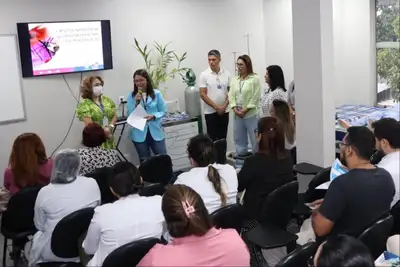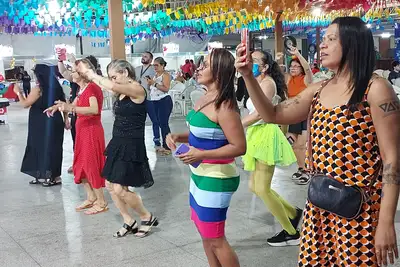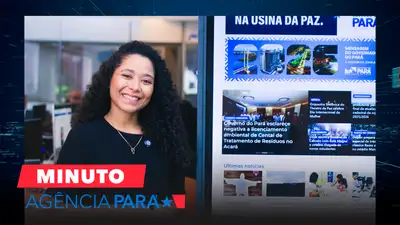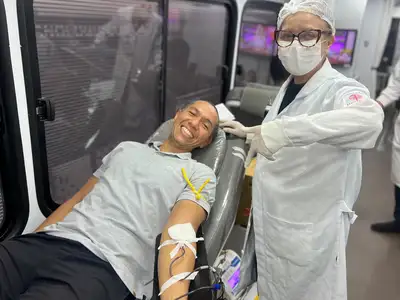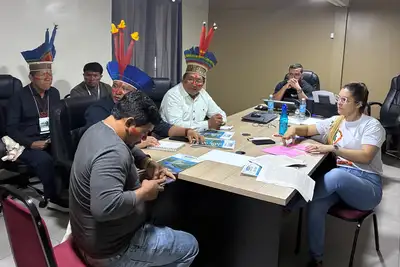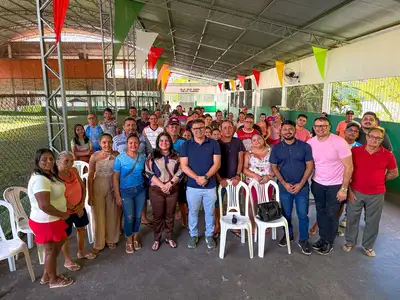Sespa chairs technical advisory of VIGIAGUA to strengthen water quality surveillance for human consumption
Event brings together municipalities and institutions to ensure quality water in Pará
The State Department of Public Health of Pará (Sespa), through the Health Surveillance Directorate (DVS), specifically the Department of Environmental and Worker Health Surveillance (Divast) and Environmental Health Surveillance (Visamb/Divast/DVS), in partnership with the Ministry of Health, is holding the Technical Advisory of the National Program for Water Quality Surveillance for Human Consumption – VIGIÁGUA from August 12 to 14. The meeting gathers professionals from various regions of the state to exchange experiences and improve the monitoring of the water that reaches the population.
The coordinator of Visamb, Virgília Fumian Gomes, explains that the event is an opportunity to unite efforts. “We asked municipalities to bring information about water supply in their regions. With this, we can identify where the water needs more attention and think of solutions to ensure it is safe for everyone,” says Virgília.
Among the topics discussed are the use of systems that help control the quality of water for human consumption, plans to protect the supply in emergency situations, and actions to face the effects of climate change.
Marcelo Simões, who supports VIGIÁGUA through the Ministry of Health, emphasizes that the Amazon needs special care. “Here, many traditional and riverside communities live far from large urban centers. Climate change has brought challenges to ensure clean and sufficient water. Therefore, training the technicians who work in the field is essential to protect these populations,” states Marcelo.
The event gathers more than 100 people, including technicians from municipal surveillance, professionals from the State Central Laboratory (Lacen), the Sanitation Company of Pará (Cosanpa), the National Health Foundation (Funasa), and other partners. Representatives from cities such as Belém, Ananindeua, Marabá, Castanhal, Bragança, and Abaetetuba are present.
Partnership in strengthening – Bruno Moreno Ramos da Silva, a technician from VIGIÁGUA representing the Ministry of Health, reinforces that the initiative goes beyond training. “The program maps all forms of water supply in Brazil and monitors the work done by those who provide and supervise this water. Thus, we can better understand the situation in each place and help correct problems,” explains Bruno.
During the meeting, participants engage in activities that stimulate critical thinking, with questions that simulate real situations and challenges to find the best solutions.
According to Marcelo, this method makes training more dynamic and effective. “We conduct detailed analyses of the water and also visits to check the conditions of the supply systems. All information is recorded in a national system, which helps identify problems and act quickly to protect the health of the population,” he shares.
Sespa reinforces its commitment to work alongside municipalities and federal agencies to ensure that the entire population of Pará has access to quality and safe water.









